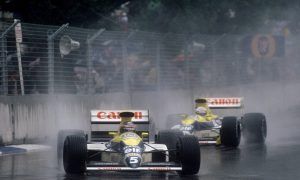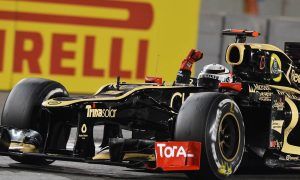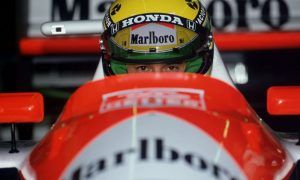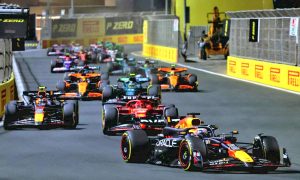Becoming world champion and hitting new heights
Known as the 'party team' with a love of loud music on pit lane, Red Bull had been nowhere in 2008 where it had finished seventh in the constructors championship. But the partnership of Vettel and Webber now delivered six wins, with Vettel himself responsible for the team's first-ever victory in China. Although they missed out in the 2009 constructors championship to Brawn GP (and Vettel was runner-up in the driver standings to Jenson Button), it established them as serious contenders for both titles in 2010.
It turned out to be a hard-fought battle with Ferrari and Fernando Alonso, but wins in three of the last four races of the year clinched it for Vettel who became the youngest champion in the history of the sport, despite not having led the standings all season. It was only when Alonso finished the last race in Abu Dhabi down in seventh that Vettel finally managed to overhaul the Spaniard's 15 point lead coming into the weekend and emerge victorious. Baby Schumi had come of age!

Heading into 2011, Vettel had to prove that his knife-edge title victory hadn't been a one-off stroke of luck. Winning six of the first eight races of the season was definitely one way of doing it. Only McLaren pair Jenson Button and Lewis Hamilton seemed able to stop him.
There were five more wins in the second half of the season and a total of 15 pole positions by the end of the year, and Vettel was assured of a second championship by a record number of points with Red Bull once again topping the constructors standings. No flash in the pan then. But surely this sort of powerhouse performance couldn't be sustained?
Sure enough it seemed that Vettel had cooled off in 2012, taking only one victory in the first 13 races which left him trailing Alonso, Hamilton and Kimi Raikkonen in the standings. His prospects of overhauling Alonso's 39 point lead seemed bleak, but then he rekindled his hopes with victory in Singapore. And the next race in Japan, and the next in Korea, and the one after in India.
By this point Vettel had surged to the top with 13 points over Alonso. Neither man won again but they were both on the podium in Abu Dhabi and Austin. Vettel was only sixth in the season finale in Brazil, but he had done enough to pip Alonso by three points.

The following season in 2013 saw Sebastian Vettel at the height of his powers, with a staggering 13 wins over the course of the 19-race season, including an unprecedented run of nine back-to-back victories. He was still only 26. It was about this time that the boos started from fans in the grandstand getting bored at seeing Vettel wipe the floor with his rivals all the time.
Vettel admitted that this had been "very difficult for me personally". He was also out of favour with Webber after he ignored team orders to stay behind the Australian when they were running one-two in Malaysia.
Even so, no one could have had the faintest idea how quickly Vettel's seemingly unshakeable grip on the sport was about to come undone, despite the warning signs that were there: Mercedes was on the rise, taking second place in the constructors standings; a disenchanted Webber quit the team and retired; and the new era of the modern hybrid engine was dawning.
Red Bull struggled with reliability issues in winter testing, and Vettel was forced to retire from the 2014 season opener in Australia. In fact he would win no races at all that year and finished fifth in the standings, two places behind his new team mate Daniel Ricciardo. An era had not so much ended as it had imploded and vanished before our eyes.








